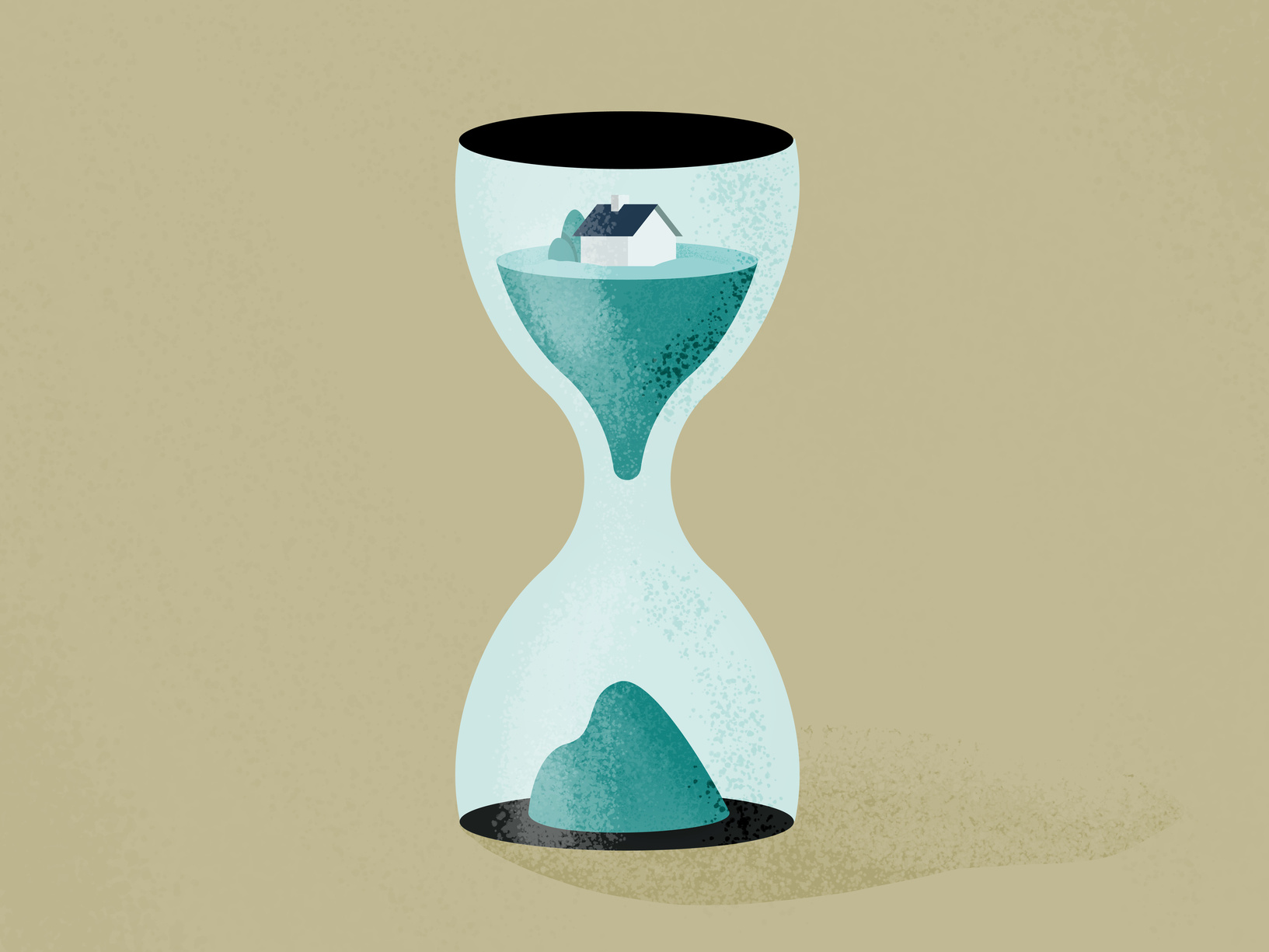It doesn’t matter if it’s a matchbox office or an entire industrial estate, almost all of Britain’s businesses need physical premises.
On our relatively small island, land comes at a premium, so property costs a lot in the UK.
It’s no surprise, then, that total secured commercial lending reached an estimated £90bn in 2023 and is expected to rise 32% by 2028.
Commercial mortgages are vital for the sustainability and growth of businesses – this article explains the process of getting one arranged, so you can take the next step towards owning commercial property.
What is a commercial mortgage?
A commercial mortgage is a loan that’s used to help you buy a property for business purposes.
To get a commercial mortgage, you must meet a lender’s eligibility criteria and have a cash deposit (usually a minimum of 30% of the total purchase price) ready to contribute.
Let’s use a £200,000 commercial property as an example. You could have a £50,000 deposit and a £150,000 mortgage, giving you 25% equity in the property and your lender 75%. You’ll make monthly repayments until the debt (and the interest you’ve accrued) is fully repaid.
The types of commercial mortgage
Commercial mortgages come with options on different terms, to suit different borrowers, properties and situations.
Variable rate
These mortgages use an interest rate which can vary through the term (typically in line with Bank of England Base Rate), so the amount you pay your lender in interest could go up or down from month to month.
Fixed rate
The interest rate on your mortgage is held at the same rate for a period of years, giving you predictable costs.
Interest-only
Under this arrangement, you only repay the interest that builds up each month. The balance of your loan is due, in full, at the end of your mortgage.
Partially amortising
These loans sit somewhere between interest-only and ‘regular’ commercial mortgages. Repayments are calculated over a longer period than the term of the loan.
For example, repayments could be calculated over a 25-year term, but the loan is only for five years. The outstanding balance at the end of the five-year period would then need to be repaid with a final, larger 'balloon payment' to settle the debt, or refinanced.
All of the above covers both investment and owner-occupied commercial mortgages, although interest-only owner-occupied mortgages are rare.
-
Owner-occupied: used by a business to buy its own premises
-
Investment: used by an investor to buy a property to lease out
To make a comparison with residential mortgages, owner-occupied is akin to the mortgage you use to buy your home. An investment mortgage is more like a buy-to-let.
Types of commercial properties eligible for mortgages
What do a hair salon and a panel beating workshop have in common? Apologies if you were waiting for a punchline; the answer is they are both commercial properties!
‘Commercial property’ is an incredibly broad term because it needs to be. Think of how many businesses need premises to operate from – and then double or triple it. We’re barely scratching the surface with the list below, although these are probably the more common examples we see.
-
Office buildings - from a ten-desk small office to a full tower block
-
Retail spaces - typically venues like shops and cafes on a high street
-
Industrial units - think of warehouses, workshops and garages
-
Hotels - we have a specialist mortgage product for hotels at Allica Bank
-
Care homes - Allica has a dedicated team for care homes, specialist care businesses and day nurseries
One of the real strengths of Britain’s SME community is its diversity. There are successful businesses everywhere, from Britain's most-haunted pub (an Allica customer) to cybersecurity firms in 11th century castles. You’ll also be familiar with the many semi-commercial properties there are around us, such as those shops or restaurants on the high street with flats above.
How to get a commercial mortgage step-by-step
If you’re looking into a commercial mortgage, knowing every step of the process might make your decision a little easier. The more you know, the better prepared you’ll feel, meaning you’ll be able to make the smartest decision for your business.
We’ve written these steps assuming that you’ve already found a property you’d like to buy.
1) Assess your financial situation
As with any big financial commitment, you’ll want to take stock of your finances before making any commitments.
Before going any further with your commercial mortgage plans, you might want to review your cashflow forecast and model a few different scenarios with and without a commercial mortgage added on top.
2) Determine your needs and budget
Once you’re clear on your cashflow and expenditure, you can work out what’s affordable.
The right property needs to provide what you need in terms of space and features, while also fitting within your range of affordability.
It’s a delicate balancing act: you can’t spend more than you can afford, but you also want to consider if you’ll be expanding soon. Buying a property only to grow out of it in a year is a surefire recipe for stress and frustration. Your accountant or a commercial mortgage broker can help you decide on the size of property you need, based on the costs involved.
3) Gather necessary documentation
Mortgages come with long administrative and legal processes, so it pays to be prepared for the back-and-forth with solicitors and agents.
Getting a Decision in Principle (DIP) isn’t always essential for a commercial mortgage, but some vendors or agents will want a DIP before accepting viewings or offers. A DIP is a pre-approval from a lender, confirming that they are happy to lend you a certain amount of money based on your financial position. A DIP is not a commitment between you or your lender.
Documents needed for a Decision in Principle
The full list of information we need to produce a DIP at Allica Bank is:
-
Your company details, and details of the directors and shareholders
-
The address, estimated value, age, tenure and type of the property
-
Details of the tenant and their lease terms (if investment)
-
Product details (the term, structure and repayment profile)
-
Your affordability (turnover, adjusted profit, rent)
-
Details of any other income sources
Most banks will ask for similar information, but we can’t guarantee any specifics.
Documents needed for a mortgage application
You’ll need different documents depending on if you’re going for an investment or owner-occupied mortgage, but for a full mortgage application with Allica Bank, you’ll be asked for some or all of the following:
-
The last two years’ financial accounts
-
Full tax returns of ultimate beneficial owners/applicants
-
Bank statements for the last three months (personal and business)
-
A proposal summary, which must include: tenant performance over the last 12 months, background experience of the directors and a brief description of the security property. You’re not expected to complete this on your own. Allica customers will be helped by their relationship manager, but brokers will also help.
-
A property schedule
-
A statement of assets, liabilities, income and expenditure (ALIE)
-
Nominated bank account details
-
Amount and source of deposit contribution
4) Make your offer
This step might come later in the process, depending on what your vendor wants. Some might be happy with a DIP, others might want to know you’ve got a committed mortgage offer from a lender already.
Either way, you need to have an offer accepted on a property to buy it. You’ll conduct this negotiation through the vendor’s estate agent, if they’re using one.
5) Research lenders
There are plenty of lenders out there who offer commercial mortgages, so shopping around is important and – in such a crowded market – necessary.
You might want to prioritise lenders who work as specialists in your sector, prefer to shop on rates alone, or follow another line of reason to narrow down your search. You might find that you’re not able to borrow from some lenders – even if you’d like to. This is because many set limits on the amount they’ll loan (both minimum and maximum), as well as setting other criteria for new customers.
You’ll need to work out what’s right for you, your business and the financial position you’re in.
6) Prepare your application
Once you’ve chosen your lender and have confirmation that they’re willing (in principle) to lend you the money, you’ll have to get your paperwork in order.
If you’ve followed these steps so far, you will have already got a lot of the documents prepared. Either way, check and then double check that you’ve got everything you need.
7) Submit your application
With all your paperwork sorted, your application drafted and the i's dotted and t's crossed, the only thing left to do is submit your application.
Most lenders accept online applications, but they might need you to submit via post or in-person. Every lender has their own policy.
8) Wait for underwriting
Once your lender has received your application, they’ll need to review it. As well as checking that all your details are true and accurate, they’ll hand your application to their underwriters to do their calculations.
Underwriting is all about calculating the risk involved in lending money. They’ll assess your ability to repay, the value and condition of the property and lots more to determine whether you and your property represent a good deal or too large a risk.
9) Review the loan offer
If you pass all the checks and reviews, you’ll be given a loan offer. If ever there is a time to read the fine print, this is it. The paperwork you’re reviewing will tie you into a long-term debt that needs to be repaid – including by foreclosure (the legal process by which a lender seizes and sells a home or property after a borrower is unable to meet their repayment obligation), in the worst case.
You and your legal representatives should make sure you know what you’re signing and that you agree to all the terms listed.
10) Sign the loan agreement
If you’re happy with your loan offer, you’re just a signature away from getting your commercial property!
Once it’s signed, you’re legally bound to the terms of the loan. The only thing left to do is let the lawyers and agents exchange contracts, draw down the funds and hand you the keys.
Why should I use Allica for my commercial mortgage?
As a commercial mortgage lender, we have a lovely orange hat we’d love to throw into the ring if you’re ready to apply for one.
With an Allica Bank commercial mortgage, you get:
-
Competitive rates and terms
-
Humans making decisions
-
Real, human contact from start to finish – either from your broker or Allica relationship manager
-
Specialist teams and specific mortgages for hotels, day nurseries and care homes
Check our commercial mortgages page for more information or send an initial enquiry now.
Now you know the process, what's your next step?
If you’re buying a commercial property – whether it’s for your own premises or to make an investment – you’re most likely considering a commercial mortgage.
The process is unique to each lender, but they all follow a roughly similar path. You’ll need to get your paperwork and records in order, stock up on patience and determination and, before long, you could own your commercial property.
If you’re interested in using Allica Bank for your commercial mortgage, we’d love to help.
Links were live and information was correct at the time of writing the article.
Disclaimer: This is information – not financial advice or recommendation
The content and materials featured in this article are for your information and education only, and are not intended to take into consideration any particular recipients’ financial situation. The product details and interest rates referred to are correct at the time of writing.
The information does not constitute financial advice or recommendation and should not be considered as such. Allica Bank will not accept any liability for any loss, including without limitation to, any loss of profit, which may arise directly or indirectly from use of or reliance on such information.





